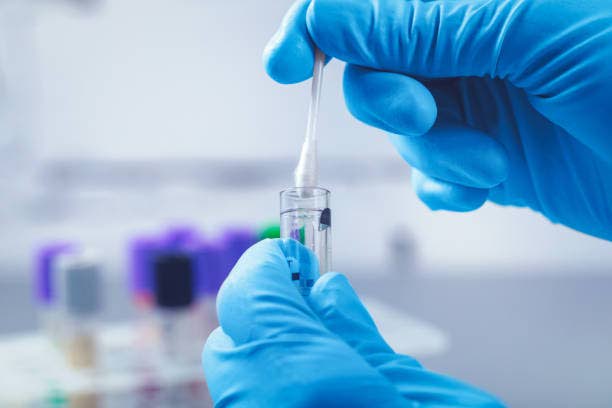Understanding genetic testing and counselling

Many of us often wonder why we look the way we are. Some of us are tall, others are short, some have light skin and others, dark skin. Many children are born with birth defects – some are born differently-abled and may even have mental and physical challenges.
Generally, humans carry two genes for each trait – one from each parent that allows them to reproduce children that share characteristic traits with them. This phenomenon is known as genetics. Genetics is the study of how traits such as the colour of your eyes and hair, your height, and the risk or probability of disease are passed from parent to their children.
Your genetic information is called your genetic code or “genome.” The genome is made up of a chemical called deoxyribonucleic acid (DNA) and is stored in almost every cell in the body. Every human is made up of about 75-100 trillion cells and 20,000 genomes. Most cells in the human body contain 46 chromosomes – 23 from each parent. The 23rd pair, also called the sex chromosomes, decides if the baby will be a male or female. Females have two X chromosomes, while males have one X and one Y chromosome.
These chromosomes contain all of the information the body requires to grow and develop normally. Chromosomal abnormalities could be a result of either a structural or numerical irregularity. Structural abnormalities may occur when a portion of a chromosome is misplaced. Numerical abnormalities could be an increase or decrease in the typical number of chromosomes. Chromosomes abnormalities can result in different developmental defects such as Down’s syndrome or Tuner syndrome. The risk of these chromosomal defect increases with maternal and paternal age above 35 years old.
Genetic disorders are those diseases that are caused by the presence of a mutation in a gene. They cause varying levels of discomfort, and some can be fatal. A common example of a genetic disorder is sickle cell anaemia. Creating the awareness of these genetic diseases among would-be parents has the potential to reduce their occurrence and allow them to avoid producing children with these diseases and the stress and health challenges that may usually accompany them. A good place to start would be with genetic testing and counselling.
Genetic testing
Genetic testing progressively appears to give the answer to the basis of sickness and offer knowledge into the health of the population. It serves as an instrument for analysis and diagnosis. It is an important factor in disease prevention and it fulfils each person’s right to known their genetic heredity. Not only can genetic screening be used for reproductive purposes, it can also provide information about a person’s health and well-being. The knowledge of one’s own genetic vulnerabilities takes away the fear of the unknown, especially if there is a previous record of the disease in the family.
Genetic counselling
Genetic counselling offers people at risk of developing an inherited disorder advice on the consequences and nature of the disorder, the probability of developing or transmitting it, ways to management it, and family planning options to prevent it. Genetic counsellors are medical experts who may carry out various genetic tests and study your family’s health records and medical history in detail.
Couple are able to find out if theirs or their spouse’s genes contain any disorder that may be passed on to their unborn baby. Premarital genetic counselling has played very important role in the management of many genetic disorders, equipping people with a complete understanding and awareness of genetic and chromosomal inheritance and what it means to be at risk’.
Facts to note about premarital genetic counselling
• Genetics has an impact on health of individuals, their offspring and future generations.
• A genetic disease, even when well-managed, still constitutes a huge burden to the family of the patient.
• It is an important tool in the detection of genetic disorders and the reduction of their occurrence.
• It is one of the most important processes for prevention of congenital anomalies, medical and psychosocial marital problems.
• It is an important measure used to reduce the incidence of genetic diseases, especially in case of older parents.
• It provides an opportunity to intervene when risks are identified.
Who should get genetic screening and counselling?
• Couples with family history of genetic diseases such as cancer, hypertension, diabetes, haemophilia, thalassemia, pre-term babies, Down’s syndrome and congenital heart diseases.
• Women over 35
• Couples of same kinship, relatives or ancestors. Depending on the degree of relationship the chances of genetic abnormalities ranges from 26 - 50 per cent.
• Women with recurrent abortions or miscarriages.
• Individuals with genetic abnormalities.
Carrier testing
This test is carried out to help prospective parents find out if they carry and/ or risk passing any genetic or chromosomal disorders to their children. It is usually recommended for people with a family history or an ethnic back ground with an increased risk of genetic or chromosomal disorders.
Prenatal diagnostic testing
This form of genetic testing can be done for pregnant women to detect changes in the foetus genes or chromosomes. It is recommended for parents with an elevated chance of having a child with a genetic or chromosomal disorder. The doctor will screen the foetus for specific conditions either through chorionic villi sampling or amniocentesis (placenta cells biopsy).
Pre-implantation genetic testing
This is a genetic testing done before pregnancy. Embryos obtained from the in vitro fertilisation process are subjected to genetic screening. This is an advanced technology in assisted reproduction and entails obtaining cells from the embryos on days three or five of culturing. Embryos with genetic defect are identified and sorted. Genetically normal, best-quality embryos are transferred back to the womb. This process helps to prevent certain genetic diseases or disorder from being passed to the offspring, which subsequently improves pregnancy rates as well as live birth.
If you are concerned about genetic diseases in your family or uncertain about your spouse’s family history, it is wise to seek counselling and testing.
Contact Dr Maxwell on 363-1807 or 757-5411.



Comments
"Understanding genetic testing and counselling"